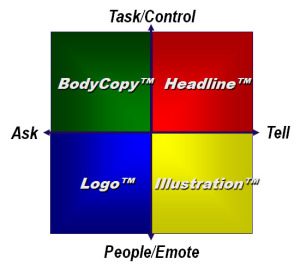What is at the heart of any negotiation? Two people trying to find a way to do business together.
But how well equipped are agencies to negotiate in order to win – and keep – clients? Agencies often don’t know how to negotiate effectively and have a tendency to undervalue and undersell their services. Today more than ever agencies need to learn how to get compensated for the full value of their creative ideas.
Staff charged with financial negotiations, contracts, and client-agency relationships should not be the same people who are doing the work. This is to avoid the potential for bad feelings. It doesn’t matter how “good” the intentions are, or how well negotiations proceed. It’s critical that agency CEOs in particular do not lead the negotiation, as they are the ones who may, at some point, find it necessary to step in to resolve potential issues.
There are, however, many advantages an agency gains when its account staff negotiates budgets with clients before developing estimates for any new assignment. A well trained staff understands how to not leave money on the table. And just as important the agency doesn’t waste time developing solutions clients can’t afford. Coming in with an estimate that way overshoots, or even worst, comes in too low, really harms the relationship and your profits. Doing so clearly demonstrates to clients just how little you understand about their business.
Successful Client Negotiation = Fair Ad Agency Compensation.
One of the first steps in successful negotiations is assessing your client’s style or profile accurately and responding to their negotiating style in the way best suited to them. There are four key profiles, based on how they work and respond. Is the client more task-oriented or people-oriented? Are they more high (tell) or low (ask) assertive? For instance, someone considered a Headline™, high assertive and high task, is focused on “now” and “results” and wants “options” presented so that they are in control of the decisions. Others, like the BodyCopy™, are more interested in “how” and “process” and respond better to fully-presented information as they check off all the pieces they want to consider.
One of the most common mistakes in negotiations is misunderstanding what the negotiations are actually concerned with (your client’s representative’s job may literally be on the line, so budget may not be as key as the client feeling confident that an agency can successfully solve the business challenge). Another problem is the agency team may not have clear goals going into negotiations, or not have a clear understanding of the roles and responsibilities for the negotiating team members. It’s important to remember that client negotiations are not always about the money. Look for other options, such as turnaround speed, payment terms, licensing agreements, or limits to the approval process. You many give up some money, but you will grow the client-relationship and still get fairly compensated.
Any negotiation is a balance between discovering what the client really wants and making them feel heard, with knowing exactly what your agency wants. Only then can the agency suggest a solution in such a way that the client can accept: always look for a win-win solution.
A Lesson From Steve Jobs.
There is a great story the Silicon Valley venture capitalist Heidi Roizen tells about negotiating with Steve Jobs. It seems Steve didn’t like the normal royalty rate of 15 % she proposed. Steve looked at the contract, and said, “15%? That is ridiculous. I want 50%.” He then tore up the contract. “Come back at 50%, or don’t come back,” Steve said. Heidi tells the story about how after recovering from the shock, she worked hard to find out it was only the 50% number he wanted, not the cash flow. For Steve Jobs, this contract wasn’t important. The only important thing was he had promised 50% in front of staff, and he needed everyone to know he got what he wanted (classic Illustration™ profile). Heidi reworked the contract to read 50%, but it was so front-loaded she was able to still receive the normal 15% royalty. Steve was happy with his 50% contract and the deal got inked.
The Evolving Client-Agency Relationship.
 Every client-relationship negotiation style evolves over time. Initially, both the agency and the client are focused on trying to establish that very important personal connection. What we call trust. In this early phase, more energy must be invested in building the relationship, and this often causes negotiations to slow down as the communication gets cleared up. After the agency has worked with a client over time can there be trust. That’s when any negotiation and workflow will really smooth out. All the little annoyances get pushed to the side. This is the golden phase of every client-agency relationship: where both the client and the agency are 100% focused on work-tasks and getting the job done. However, any mistake, setback, a dropped due-date, can quickly swing that great relationship upside down. The day-to-day negotiations swing from task (getting the work out) to relationship (you don’t understand me!). And until the relationship is healed, most of the work essentially needs to, or will, come to a stop. The agency team needs to learn how to refocus their energy– not on winning, not on getting the work out, but on rebuilding trust.
Every client-relationship negotiation style evolves over time. Initially, both the agency and the client are focused on trying to establish that very important personal connection. What we call trust. In this early phase, more energy must be invested in building the relationship, and this often causes negotiations to slow down as the communication gets cleared up. After the agency has worked with a client over time can there be trust. That’s when any negotiation and workflow will really smooth out. All the little annoyances get pushed to the side. This is the golden phase of every client-agency relationship: where both the client and the agency are 100% focused on work-tasks and getting the job done. However, any mistake, setback, a dropped due-date, can quickly swing that great relationship upside down. The day-to-day negotiations swing from task (getting the work out) to relationship (you don’t understand me!). And until the relationship is healed, most of the work essentially needs to, or will, come to a stop. The agency team needs to learn how to refocus their energy– not on winning, not on getting the work out, but on rebuilding trust.
One final thought: it’s important to remember that getting an agreement is the easy part. Keeping the agreement is often the hard part. If you would like to learn more sign up for High Gear Account Service Training. Just give us a call at 412.897.9329 or drop us a line at [email protected]
Great pig photo by AshleyxBrooke


